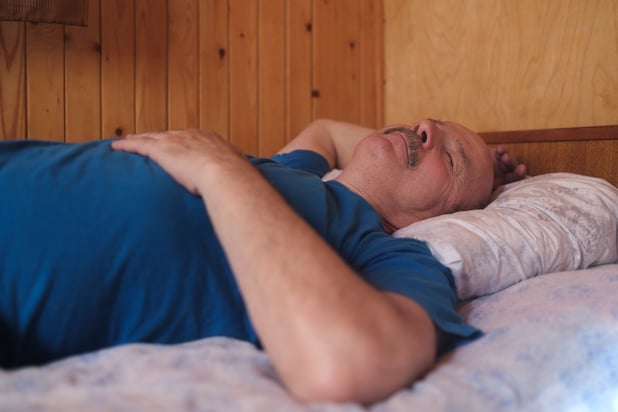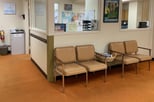Sleep is vital when recovering from any addictive substance, from alcohol to drugs to even food addiction. However, certain addictions are more susceptible to sleep deprivation than others.
Studies shows that insomnia and alcoholism are significantly related. In fact, according to the National Center for Biotechnology Information, insomnia occurs in 36-72% of alcoholic patients.
Lack of sleep can have serious consequences including anxiety, depression, mood changes, weight gain, accidents, impaired decision-making and even a relapse when alcohol is used to aid sleep. The truth is that alcoholism can actually worsen the negative effects of insomnia. The same study demonstrated that insomnia among patients entering treatment for alcoholism was significantly associated with subsequent alcoholic relapse.
Once a person is aware of their sleep issues, each individual should develop their own strategies and assure their body gets the rest it needs to increase the success of recovery.
Here are 10 ways to maintain a healthy sleep cycle and improve your rate of success through sobriety.
1. Skip the Caffeine
Anyone with sleep issues, in recovery or not, should avoid caffeine in the evenings. Most experts advise to stop drinking coffee, caffeinated tea, Red Bull, etc., six hours prior to bed.
2. Exercise
A daily routine of regular physical activity can help. Getting sufficient and tiring exercise during the day will help promote sleep at night. However, most experts advise against exercising 2-3 hours before bed.
3. Set Up Your Room
Arrange your bedroom into a calming, sleep-inducing environment by eliminating all extraneous noise and light.
Make sure you have all the essentials such as a comfortable mattress and pillows. Check that the mattress that you are using is in good condition--about 9 or 10 years is the average life expectancy for most high-quality mattresses. Your bedroom temperature should also be set between a cool 60 and 67 degrees. Studies clearly demonstrate that this is the ideal temperature for sleep.
We use all our senses when we sleep, including the sense of smell. Add aromatic touches of lavender as the scent is known to ease anxiety and insomnia.
4. Be Consistent
Establish a regular pre-sleep routine (bath, herbal tea, reading a book, etc.). In other words, wind down. Your body needs time to shift into sleep mode so spend the last hour before bed doing a calming activity such as reading. Keeping a consistent sleep cycle helps the body’s internal clock stay regulated. Also, try to sleep and wake at the same time every day.
5. Put Away Electronics
It's not a good idea to use your bed to watch TV, check your email or play games on your smartphone. A recent poll by the National Sleep Foundation found that 95% of people use some type of computer, video game or cell phone at least a few nights a week within the hour before bed. These are all activities that keep us awake.
The particular type of light emanating from the screens of these devices is stimulating to the brain and has the potential to disrupt sleep. If you have trouble sleeping, avoid electronics before bed.
6. Try Not to Nap
If you experience sleeplessness, don't nap during the day. A long nap or a nap taken too late in the day may negatively affect the length and quality of nighttime sleep. If you have trouble sleeping at night, a nap will only magnify sleeping problems.
7. Stop Worrying
If you cannot sleep, the worry that comes with sleeplessness can induce stress which actually increases insomnia. It is far better to get out of bed and do something relaxing until you start to feel drowsy.
It will also help if you keep a journal of your sleeping habits. This will tell you if certain kinds of foods might be causing your sleep problems, if you are worrying about specific things or if certain activities in the evening may be interfering with your attempts to relax and rest.
8. Maintain Your Health
Staying healthy is an important component of recovery. The lack of sleep can affect your immune system. Studies show that people who don't get quality sleep or enough sleep are more likely to get sick after being exposed to a virus, such as the common cold. Lack of sleep can also affect how fast you recover if you do catch a bug.
9. Use Self-Help Techniques
Implementing breathing, meditation and imagery techniques to promote sleep provides a way to relax regardless of your environment. A sleep therapist may be helpful to guide you on this path if your sleeplessness persists.
10. Stay Away From Substances
Some addicts become so frustrated with their sleeplessness that they turn to the same substances they are trying to avoid to enhance sleep (drugs, alcohol, prescriptions, etc.). This is especially true of alcoholics, who sometimes get so desperate for a good night’s sleep that they start drinking again because they falsely believe that the effects of alcohol will help them sleep normally. Don’t fall into this trap.
It almost goes without saying, but the one thing you should never do is use drugs and alcohol to "fix" sleep issues. No matter how bad your sleeping problems get, you will only be able to return to normal sleep rhythms when all drugs are out of the picture for good.
|
If you or someone you know is seeking help from addiction, please visit our directory of treatment centers or call 800-891-8171 to speak to a treatment specialist. |








